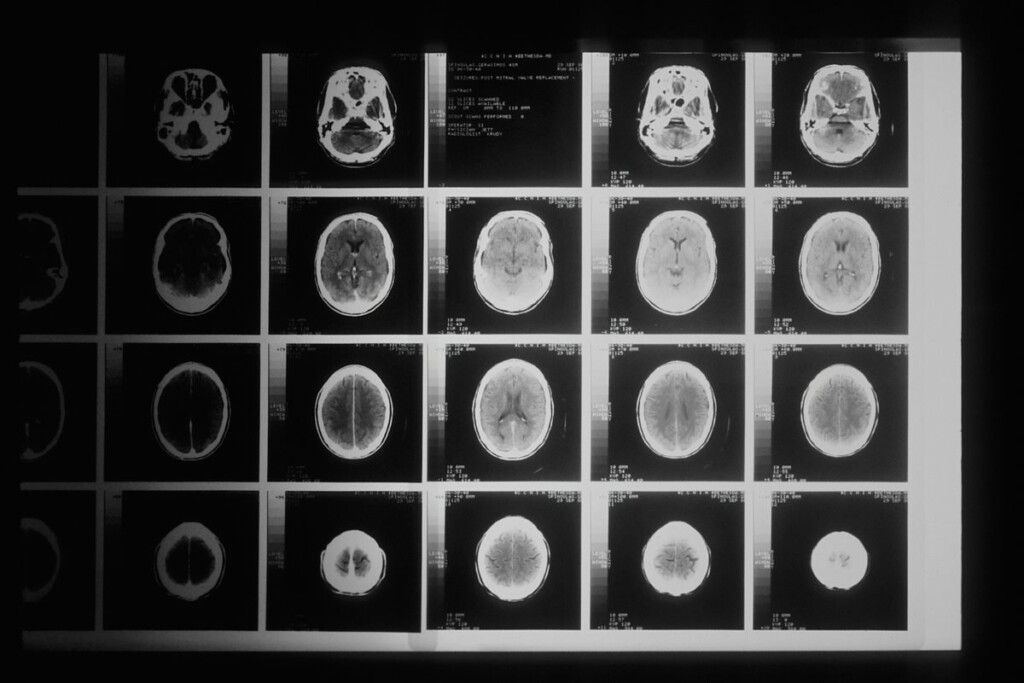 Various brain mri scans – Photo by National Cancer Institute on Unsplash
Various brain mri scans – Photo by National Cancer Institute on UnsplashA breakthrough in understanding how and why some cancer tumors are particularly aggressive and non-responsive to treatments has placed blame on breakaway strands of roguish DNA.
The discovery implicates several documented forms of cancer, including of the breasts, lungs, and brain, and also offered hope for identifying and treating these tumors in future patients.
The center of the discovery is something called extrachromosomal (external from the chromosome) DNA, or ecDNA for short. Sequences of our genetic coding are wrapped tightly around histones with the help of 23 pairs of chromosomes. This keeps the code small enough to fit inside a cell nucleus.
In some cases, DNA can break off the chromosomes and sit apart inside the nucleus, a rare occurrence that was once considered insignificant in the development of cancer. However, in a series of three papers published by a coalition of US-UK researchers, these bits of ecDNA were found to be present in tumor cells of some of the most aggressive and treatment-resistant cancers.
“This is not just a discovery about what can make cancer so bad, it is actually pointing the way to a new set of therapies,” said Paul Mischel, a professor of pathology at Stanford University, author of one of the three papers, and director of the lab in which all three were conducted.
“There’s a path forward for developing new treatments because this type of DNA is different and it creates vulnerabilities that are different,” he told the Guardian.
The ecDNA fragments, found in 17.1% of all tumors examined in the studies, carried cancer-driving genes and other genes that suppress the immune system. The studies also found that ecDNA can replicate—chaotically—and that this also drives cancer growth.
MORE CANCER RESEARCH: New Cervical Cancer Treatment Regime Shows ‘Biggest Gain in Survival Since 1999’
Tumor cells were sometimes found to contain far more fragments of ecDNA than others, signifying that once apart from the DNA-histone-chromosome structure, they don’t divide evenly along with the cell. Some daughter cells inherit far more ecDNA than others.
The good news is that drugs called CHK1 inhibitors were found to selectively destroy tumor cells containing ecDNA in mice when given alongside a traditional anti-cancer drug.
David Scott, the director of Cancer Grand Challenges at Cancer Research UK, which funded the studies, noted that this treatment, if observed in humans, would have the effect of “cutting the lifeline” these tumors rely on to evade traditional and more novel immunotherapy treatments.
OTHER BREAKTHROUGHS LIKE THIS: Researchers Bend DNA Strands with Light, Revealing a New Way to Study the Genome
“Many of the most aggressive cancers depend on ecDNA for survival, and as these cancers advance, ecDNA drives their resistance to treatment, leaving patients with few options. By targeting ecDNA, we could cut the lifeline of these relentless tumors, turning a terrible prognosis into a treatable one.”
SHARE This Cutting Edge And Hopeful Research With Your Friends…
Source link

